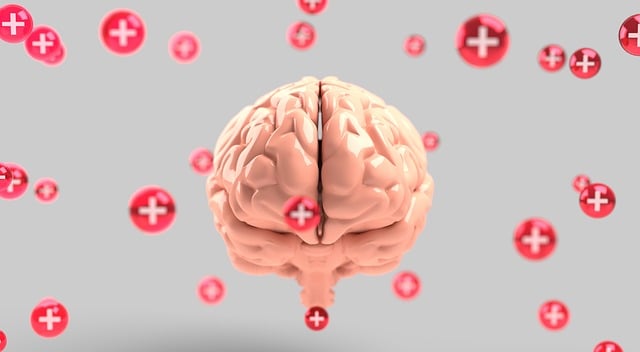Littleton Anxiety Therapy offers Social Skills Training (SST), a transformative approach for individuals with mental health conditions, focusing on communication, empathy, active listening, assertiveness, and nonverbal cues. Their evidence-based methods, including CBT and role-playing exercises, empower clients to manage anxiety, form connections, and participate fully in community life. By integrating practical strategies and a supportive environment, Littleton Anxiety Therapy aims to prevent burnout, enhance patient-therapist relationships, and improve treatment outcomes for those dealing with social anxiety disorders.
Social skills training is a powerful tool in managing mental health conditions, particularly anxiety disorders. This article delves into the intricate relationship between social interactions and mental well-being, focusing on anxiety’s impact. We explore effective strategies, with a spotlight on Littleton Anxiety Therapy, designed to enhance social abilities and build confidence. Through understanding these challenges, we aim to provide insights for individuals seeking to improve their communication skills and overcome social anxiety disorders.
- Understanding Social Skills and Mental Health: A Connection Explored
- The Impact of Anxiety on Social Interactions: Challenges and Barriers
- Littleton Anxiety Therapy: An Approach to Enhancing Social Abilities
- Strategies for Developing Effective Communication Skills
- Building Confidence and Overcoming Social Anxiety Disorders
Understanding Social Skills and Mental Health: A Connection Explored

Social skills are a vital component of our daily interactions and play a significant role in promoting emotional well-being. For individuals navigating mental health conditions, understanding and honing these skills can be transformative. Mental health challenges often impact social functioning, leading to feelings of isolation and difficulty connecting with others. This is where Social Skills Training (SST) steps in as a powerful tool, offering effective techniques for improving communication, empathy, and overall social engagement.
At Littleton Anxiety Therapy, we explore the deep connection between social skills and mental health. By integrating Emotional Well-being Promotion Techniques into our SST programs, we help clients build confidence in social settings, manage anxiety, and foster meaningful connections. Mental Health Awareness is increased through practical exercises that encourage active listening, assertiveness, and appropriate nonverbal cues, ultimately enhancing the client’s ability to navigate social situations with ease and purpose.
The Impact of Anxiety on Social Interactions: Challenges and Barriers

Anxiety disorders can significantly impact an individual’s social life and interactions, creating a cycle of avoidance and isolation that exacerbates symptoms. The mere thought of social gatherings or even simple conversations may trigger intense feelings of fear, worry, and self-consciousness, leading many individuals to retreat into solitude. This internalized anxiety can manifest as shyness, difficulty initiating conversations, or extreme social phobia, making it challenging to engage in the back-and-forth nature of social exchanges.
Littleton Anxiety Therapy emphasizes that these challenges are not merely personal failings but complex reactions to intense anxiety. Overcoming them requires specialized interventions like cognitive-behavioral therapy (CBT), which helps individuals challenge negative thought patterns and learn relaxation techniques. By addressing these barriers, mental health professionals can empower individuals to rebuild their social connections, boost confidence, and actively participate in community life while managing their mental illness effectively. Additionally, efforts to reduce the stigma associated with mental illness play a crucial role in creating an environment where those struggling with anxiety feel understood and supported.
Littleton Anxiety Therapy: An Approach to Enhancing Social Abilities

Littleton Anxiety Therapy offers a unique approach to enhancing social abilities for individuals with mental health conditions, particularly focusing on anxiety disorders. This therapeutic method goes beyond traditional talk therapy by integrating practical communication strategies and role-playing exercises tailored to real-life scenarios. Through this immersive process, clients develop confidence in their interactions, learning to manage anxious thoughts and behaviors that often hinder social engagement.
By combining evidence-based techniques with a supportive environment, Littleton Anxiety Therapy aims to empower individuals to overcome social anxiety and improve overall well-being. This approach not only benefits those struggling with mental health issues but also serves as a valuable tool for healthcare providers looking for effective burnout prevention strategies. Incorporating these communication skills into self-care practices can enhance the quality of care provided, fostering deeper connections with patients and improving treatment outcomes.
Strategies for Developing Effective Communication Skills

Developing effective communication skills is a cornerstone of social skills training, particularly for individuals managing mental health conditions such as anxiety. Strategies like active listening, where therapists encourage clients to express their thoughts and feelings openly while focusing on understanding rather than responding, foster deeper connections and enhance therapy outcomes. This approach, often seen in Littleton Anxiety Therapy practices, promotes a safe space for emotional expression, crucial for regulating anxiety symptoms.
Cultural sensitivity in mental healthcare practice plays a significant role in effective communication. Therapists should be adept at tailoring their communication styles to suit diverse cultural backgrounds, incorporating techniques that resonate with clients from varied ethnic and socio-cultural contexts. This inclusive approach ensures that Social Skills Training becomes accessible and impactful for everyone, promoting better emotional regulation and overall well-being.
Building Confidence and Overcoming Social Anxiety Disorders

Building confidence is a pivotal aspect of social skills training, especially for individuals managing social anxiety disorders. Through Littleton Anxiety Therapy, patients learn to challenge negative thought patterns and engage in activities that foster self-assurance. This process involves gradual exposure to social situations, starting from less intimidating scenarios and progressively moving towards more complex ones. As anxiety decreases, so does the fear of social interactions, enabling individuals to participate more actively in their communities.
Emotional regulation techniques, including mindfulness meditation, play a significant role in this journey. Mindfulness helps individuals become more aware of their emotions without judgment, allowing them to manage anxiety symptoms effectively. By combining these strategies with emotional healing processes, patients gain the tools needed to navigate social situations with newfound confidence and resilience, enhancing their overall quality of life.
Social skills training, as demonstrated by innovative approaches like Littleton Anxiety Therapy, plays a pivotal role in managing mental health conditions, particularly social anxiety disorders. By focusing on communication strategies and confidence-building techniques, individuals can navigate social interactions with newfound ease. This tailored therapy not only enhances their quality of life but also empowers them to participate fully in various aspects of society, offering a promising path toward improved mental well-being.








